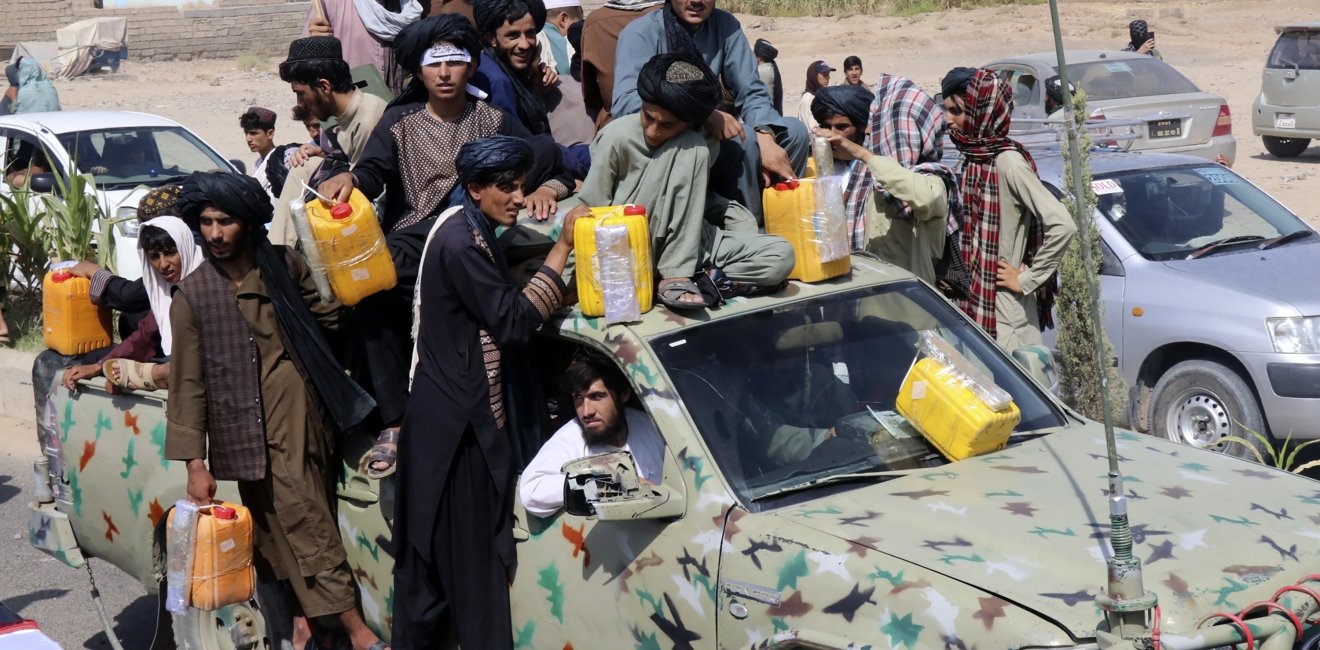The Absurdity of the Taliban’s New Restrictions on Women
MEP Global Fellow Sola Mahfouz reflects on the absurdity of the new Taliban decrees, which include restrictions on women speaking in public.

A blog of the Middle East Women's Initiative
MEP Global Fellow Sola Mahfouz reflects on the absurdity of the new Taliban decrees, which include restrictions on women speaking in public.

“Two years later, part of my satire became a reality: the Taliban issued a decree forbidding women from speaking in public. What kind of absurdity is this?”
Afghanistan's politics never leave you alone; they encroach upon your life, no matter how far you stray. In 2021, the laws that had shaped our lives since 2001 lay shattered and left me disoriented. It was as if a disruption had torn through order, rendering everything I knew unintelligible.
With dizzying speed, the Taliban issued decree after decree, stripping away women's rights one after another: education bans, employment prohibitions, travel restrictions, exclusion from government, denied access to healthcare from male doctors, and even a ban on using smartphones in public. Each day brought a new absurdity.
During these bewildering times, I discovered Samuel Beckett and the theater of the absurd. His work resonated with the surreal reality unfolding around me. The typical ways in which the mind constructs meaning—through language and logic—disintegrated when facing the Taliban’s rule.
If madness had a physical form, it would surely resemble the Taliban. Nearly half of the population is starving, and the economy is in freefall, yet they focus obsessively on eroding the fundamental rights of women—rights so basic I had thought them to be inalienable, like the right to speak publicly.
In those times, I wrote a short satire to encapsulate what was going on in my mind. In this story, the Taliban, in their latest act of ‘divine comedy’, has decreed that women should not speak in public but use sign language instead. They claim it’s a message from Allah—a divine strategy to prevent women from corrupting men by merely conversing. It’s their latest spiritual brainstorm, right up there with other hit singles like controlling what women should wear and how they should walk.
To give this new rule some teeth, the Taliban cooked up a procedure straight out of a bureaucratic nightmare: catch a woman talking, tell her to zip it, hunt down her male guardian, and then throw him in the slammer—because obviously, it’s his fault. And just when you thought they couldn’t top themselves, the Ministry of Promoting Vice and Preventing Virtue (which sounds like something out of a dystopian sitcom) offered sign language courses for women. It’s considerate of them to ensure everyone’s on the same, silent page.
The fictional Human Rights Watch chimed in too, tweeting their dismay and promising to keep a ‘close eye’ on the situation. Because, as we all know, tweets have always been the kryptonite to fundamentalism. So, in the grand scheme of things, where does this leave us?
Well, according to the Taliban’s version of Albert Camus, worrying about the existential dread of whether a woman should speak or sign in public is the cornerstone of governance. Everything else is just child’s play.
Two years later, part of my satire became a reality: the Taliban issued a decree forbidding women from speaking in public.
What kind of absurdity is this? After the graveyard of empire, has Taliban-ruled Afghanistan become the new theater of the absurd?
The views represented in this piece are those of the author and do not express the official position of the Wilson Center.


The Wilson Center’s Middle East Program serves as a crucial resource for the policymaking community and beyond, providing analyses and research that helps inform US foreign policymaking, stimulates public debate, and expands knowledge about issues in the wider Middle East and North Africa (MENA) region. Read more


The Middle East Women's Initiative (MEWI) promotes the empowerment of women in the region through an open and inclusive dialogue with women leaders from the Middle East and continuous research. Read more



